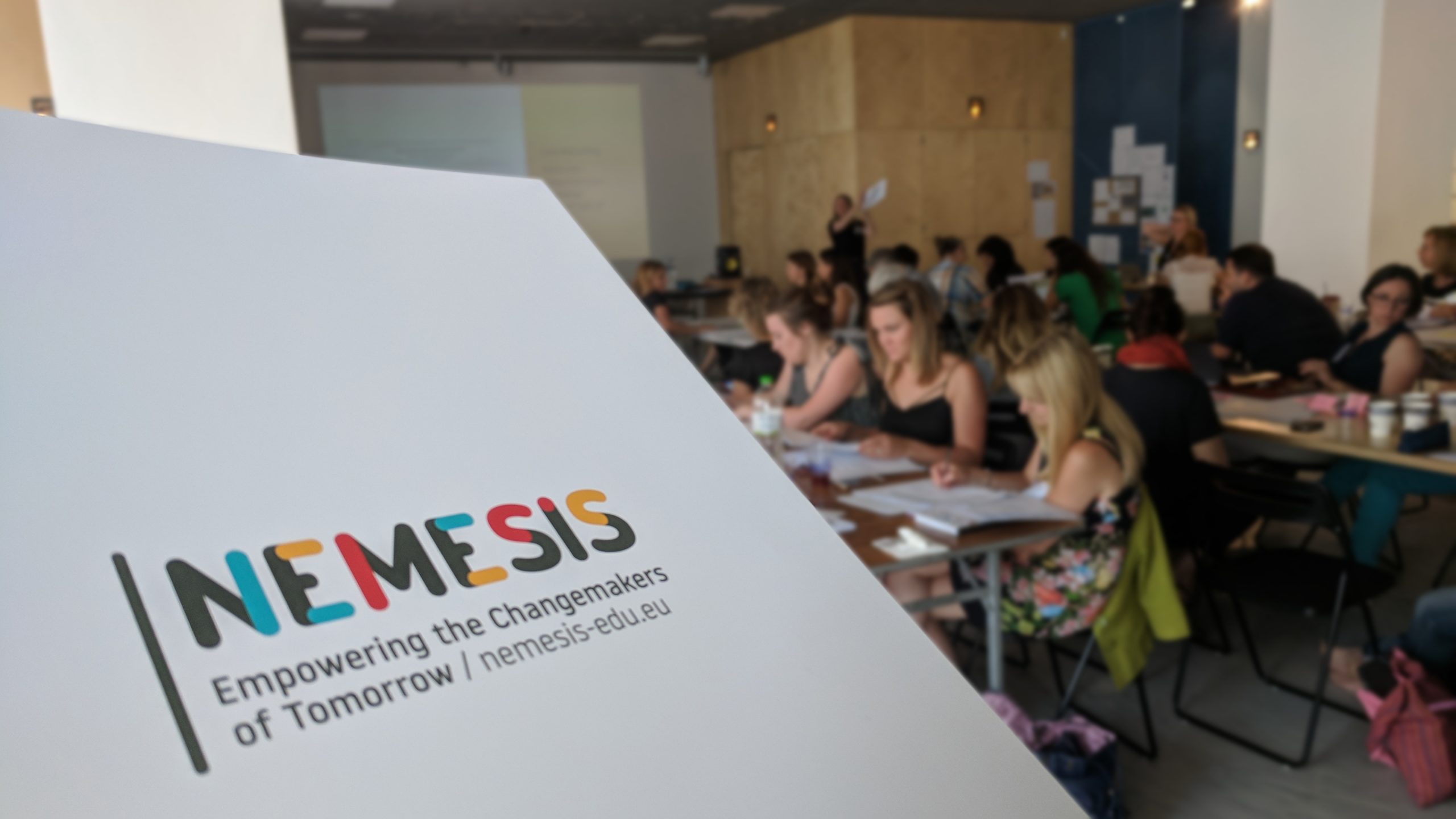We had the pleasure of attending the last Social Innovation Community meeting in Seville. The discussion centred on how to foster a culture of social innovation and how to ensure the practice of this in society. In the NEMESIS project we believe the answer to this is simple: education.
If you want to improve the future, you must empower the students of today so that this change can take effect. Help them develop the skills and competences that will allow them to achieve their vision. Hence our project motto: “bringing together education and social innovation to empower the changemakers of tomorrow”.
Contrary to the current trend, we don’t focus on universities but on primary and secondary education (ages 6-18). Because, to paraphrase Donna Haraway, to imagine change one must feel that change is possible, and school is where everything begins.
Our approach is different from entrepreneurial education, which is mainly focused on (self)employability. Instead, we emphasize the collective ability to identify and tackle social problems, fostering competences such as empathy and social resilience. In fact, we would label what we do as ‘social innovation education’, and define it as a “collaborative and collective learning process for the empowerment and socio-political activation of students – to drive social change regardless of their professional careers”.
The type of projects being developed by participating schools range from one to improve the schoolyard (including an ecological brigade, a community garden and a playground area with recycled materials), to a second-hand market in a deprived area; from an application allowing blind people to access information about city monuments, to renovating a community house for children with social and behavioural difficulties. Such a variety demonstrates the range of initiatives that ‘social innovation’ encompasses and demonstrates the relevance they have in education.
All these projects emerged in a shared and open discussion between teachers, students, parents, social innovation practitioners, and other members of the community – including, in some cases, members of the local council. The diversity of the projects developed is not surprising given the range of social innovation practitioners involved: business owners, NGOs, civic society activists, members of community gardens…
The generative discussion meetings are called co-creation labs, and they are the cornerstone of our proposed educational model. It’s here where the magic happens: where silos are broken down and different actors come together to share their opinions, using participatory methods to ensure everyone has the same opportunity to participate, and where students have as much say as parents or teachers in directing the projects.
Our ultimate goal? That these collaborative and social innovation approaches become more widely valued and adopted in schools. We want them to become part of the school culture and curricula and resultantly to strengthen the relation between the classroom and the local community. There are of course challenges to overcome – from the different degrees of school autonomy across Europe to the difficulties of changing organizational models inside schools. However, we expect the project to push those boundaries and to serve as a stepping stone in the introduction of social innovation education in schools.
The complete Haraway quote referred to earlier reads as follows: “even to imagine destabilization, one must be formed at a social moment when change is possible, when people are producing different meanings in many other areas of life” (from her 1989 book Primate visions: Gender, race and nature in the world of modern science). As social innovation is gaining momentum in different fields and among political actors, it’s the perfect time to introduce its philosophy, values and skills to the younger generation. After all, they are the change to come.
—
NEMESIS is a Horizon 2020 project bringing together education and social innovation to empower the changemakers of tomorrow. The project started in 2018 and it will continue until 2021. At the moment there are ten schools involved from five European countries and a second pilot will start on September 2019, for which we invite more schools to join. Social innovation practitioners are also encouraged to join and become part of NEMESIS database of partners interested in collaborating with schools.
This article first appeared in the Social Innovation Community website

